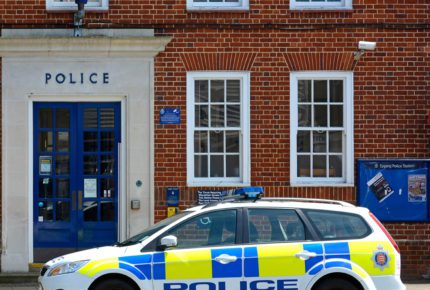

The increasing tendency of police to release suspects ‘under investigation’ has been criticised for jeopardising the civil liberties of suspects. Being released ‘under investigation’ is similar to being released on pre-charge bail, however, unlike bail, there are no bail conditions. This means that whilst released under investigation, the police cannot require you to live at a certain address, impose a curfew, or prevent you from contacting specified persons. Unlike bail, when you are released ‘under investigation’ there is no requirement to report regularly to the police station.
You might think that this is a better scenario for a suspect’s human rights compared to being released on bail. However, the problem with being released ‘under investigation’ is that the police do not have to follow the same strict protocols as they do when they have a suspect on bail. This can lead to cases being investigated less efficiently, dragging out the time that the suspect has to deal with a criminal allegation hanging over them. The released under investigation procedure has been criticised in Parliament for keeping suspects in a state of limbo. Often, suspects do not have much information in respect of the crime of which they have been accused.
How long can the police keep you released under investigation in the UK?
Shockingly, there is no limit to the time that police can keep you released ‘under investigation.’ Being released ‘under investigation’ was not a common occurrence until 2017, when the government changed the law, supposedly to strengthen the rights of suspects, by imposing a time limit on pre-charge bail. The Police, Crime, Sentencing and Courts Act 2022 limits the time limit on pre-charge bail to 3 months.
To avoid the pre-charge bail time limits, police began releasing suspects under investigation instead. In 2018, 236,996 suspects were released under investigation. The downside to being released ‘under investigation’ is that without the pressure of a bail date to remind investigating officers to progress the investigation, some cases get ignored or side-lined by overburdened police forces. Moreover, the tendency to release suspects under investigation rather than bail can also place the public at risk, because the police do not have the power to issue conditions preventing suspects from contacting victims and witnesses in their case.
Being released under investigation indefinitely can be damaging for the mental health of suspects, and there have been reported cases of individuals taking their own lives whilst awaiting the police’s charging decision.
How long can a police investigation go on for?
Police investigations can go on for as long as the police consider it necessary to continue looking into a case. In some cases, police investigations can run for many years. If you are a suspect, you should be notified when the police close their investigation. The police will also inform victims and witnesses in your case that it is no longer being investigated. If you were previously a suspect in a police investigation and you want to know what information the police hold about you, you can complete a subject access request pursuant to the Data Protection Act 2018, and send it to the relevant police force. However, if the investigation is still on-going, the police will not disclose information in respect of it.
Police investigations are closed when police have pursued all lines of enquiry and either there is insufficient evidence to charge; the police or CPS have concluded that bringing a charge is not in the public interest; or the police have concluded that no offence has been committed. When the police inform you a case is being closed, they will say that they are taking ‘no further action’ (NFA).
There is nothing to stop the police from reopening a closed case if new evidence comes to light. If a long time has passed since the offence, the police will usually only reopen the case if it a serious case, such as murder, child sex offences, or a matter of political significance. For example, in September 2021, police announced that they were pursuing new lines of enquiry regarding the murder of Vicky Glass from Middlesbrough, who died in 2000. Between 2000 and 2015, Leicester police reopened investigations into allegations of historic sexual abuse (known as the Rotherham scandal). The abuse occurred as far back as the late 1980’s. The most recent convictions took place in 2016 and 2017.
Is there a time limit on being charged with a crime in the UK?
If you are worried that you could be prosecuted in the future for a minor offence that happened a long time ago, the good news is that this is very unlikely. Criminal proceedings for summary only offences have to be instituted within 6 months of the criminal act. This is set out in Section 127 of the Magistrates’ Court Act 1980 and 7.2(10) of the Criminal Procedure Rules.
Summary only offences are a category of offences that are usually heard in the Magistrates’ Court. Magistrates’ Courts have a maximum sentencing power of 6 months per offence, or 12 months in total for a combination of different offences. Therefore, summary only offences tend to be less serious offences. These include common assault, shop-lifting, criminal damage of less than £5000, motoring offences such as driving without insurance, littering, or disorderly behaviour pursuant to Section 5 of the Public Order Act 1986. Say, for example, you were arrested on 10 January 2021 for drunk and disorderly behaviour; the police would have until 10 June 2021 to institute criminal proceedings for the offence.
There are some exceptions to the 6 month time limit for summary only offences. These include certain immigration offences, regulatory offences and animal cruelty offences, and welfare benefits cases. The time limits for these cases are governed by separate legislation that allows a charge to be laid much later, in some cases up to 3 years after the date of the offence.
What happens after a police investigation?
Once the police have completed their investigation, a charging decision will be made. This decision is either taken by the police themselves (for summary only offences and some either way offences) or by the CPS for more serious offences. If the decision is made not to charge, you will be informed that the police have decided to take no further action.
If, on the other hand, you are charged, you will be provided with a copy of the charge sheet. This means that the state has commenced a criminal prosecution against you. If you are on bail, you will probably receive the charge sheet when you attend your bail date. If you were released under investigation, you may be sent your charge sheet in the post and told to appear at the Magistrates’ Court (this is also known as a postal requisition).
You will make your first appearance in the Magistrates’ Court. From there, your case will be dealt with differently depending on if the offence is summary only, either way, or indictable.
Indictable only cases will be transferred to the Crown Court, for trial or, if you plead guilty, for sentencing. Summary only cases will remain in the Magistrates’ Court. For either way offences, the magistrate will consider whether the case should remain in the Magistrates’ Court. The two factors that are relevant to this decision are:
- whether the evidence in the case is complex, in which case it would be more appropriate for the Crown Court;
- whether the Magistrates’ Court’s sentencing powers are adequate to hear the matter.
If the magistrate concludes that they have adequate sentencing powers to hear the matter, the defendant will be asked to elect whether to remain in the Magistrates’ Court or be transferred to the Crown Court.
Whilst the Crown Court’s sentencing powers are greater, statistically, according to CPS data from 2017-2018, you have a better chance of being acquitted by a jury in the Crown Court in comparison with a magistrate or district judge in the Magistrates’ Court. If you are not sure whether to remain in the Magistrates’ Court or transfer to the Crown Court, speak with your criminal defence solicitor.
Where to get further help?
If you are a suspect in a police investigation, do yourself a huge favour and get a good lawyer on your side. You are innocent until proven guilty at trial, but the right firm of solicitors could help you get your case dropped before it even gets to that stage. Regardless of how you intend to plead, a strong legal team will help you get the best possible outcome. Here at Stuart Miller Solicitors, we pride ourselves on our robust representation. We pull out all the stops for our clients. Contact us for a no-obligation consultation today.
(This page was last updated on November 15, 2023.)
OUR COMMITMENTS TO YOU:
-
Responsive
A legal expert will consult you within 24 hours of making an enquiry.
-
Empathetic
We will always treat you with trust, understanding and respect.
-
Specialised
Your case will be handled by an expert who specialises in your type of offence.
-
Proactive
We will take early action to end proceedings as soon as it is practically and legally possible to do so.
-
Engaged
You will be kept updated on your case at all times. We will provide a named contact available to answer your questions.
-
Caring
We understand this is a difficult and stressful time for you and your family. Our team will support you every step of the way.
-
Tenacious
We will never give up on your case. We fight tirelessly to get you the best possible outcome.
